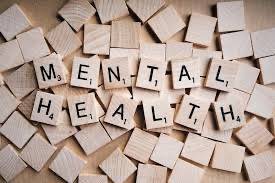**Mental Health Awareness: Exploring the Impact of Social Media on Mental Health**
In today’s digital age, social media platforms like Facebook, Instagram, Twitter, and TikTok have transformed how we communicate, share information, and connect with others. While these platforms offer opportunities for social interaction and community building, they also present significant challenges to mental health. Understanding this duality is crucial as we navigate an increasingly online world.
### The Positive Aspects of Social Media
Social media can foster a sense of community, especially for individuals who may feel isolated in their offline lives. Platforms allow people to connect over shared interests, experiences, and struggles. For those dealing with mental health issues, these spaces can provide support networks that were previously difficult to access. Online communities often offer validation and empathy, reducing feelings of loneliness and stigma.
Moreover, social media can serve as a tool for mental health awareness. Campaigns and educational content spread rapidly across these platforms, reaching diverse audiences. Influencers and mental health advocates use their platforms to share personal stories, which can encourage others to seek help and recognize their own struggles. This visibility is essential in normalizing conversations about mental health, making it easier for individuals to discuss their experiences without fear of judgment.
### The Negative Aspects of Social Media
Despite these benefits, social media can also have detrimental effects on mental health. One of the most significant issues is the pressure to present an idealized version of oneself. The curated nature of online profiles often leads to comparisons, where users measure their lives against unrealistic standards. This phenomenon can trigger feelings of inadequacy, low self-esteem, and anxiety. Research indicates that excessive social media use is correlated with increased rates of depression, especially among young people.
Cyberbullying is another critical concern. The anonymity provided by social media can embolden negative behaviors, leading to harassment and bullying that can have lasting psychological impacts on victims. This abuse often occurs outside of the supervision found in traditional settings, making it harder for individuals to escape or report it.
### The Role of FOMO and Social Comparison
Fear of missing out (FOMO) is a pervasive issue in the realm of social media. Users are often bombarded with images of friends and peers enjoying life, leading to feelings of exclusion and anxiety. This constant exposure to curated lifestyles can exacerbate feelings of loneliness and dissatisfaction, as individuals struggle to reconcile their own lives with the idealized portrayals they see online.
Social comparison theory posits that individuals determine their own social and personal worth based on how they stack up against others. Social media platforms magnify this tendency, often resulting in negative self-perception. Engaging with content that emphasizes material success, beauty standards, and lifestyle choices can lead to feelings of inadequacy and diminished self-worth.
### The Impact on Attention and Sleep
Beyond emotional well-being, social media can affect cognitive functions and overall health. The addictive nature of scrolling through feeds can lead to decreased attention spans, making it difficult for users to focus on tasks. This distraction can hinder academic and professional performance, creating a cycle of stress and anxiety.
Additionally, the use of social media, particularly before bedtime, can disrupt sleep patterns. The blue light emitted from screens can interfere with the body's natural sleep-wake cycle, leading to insomnia and other sleep disorders. Poor sleep is intricately linked to mental health, further exacerbating issues like anxiety and depression.
### Strategies for Healthy Social Media Use
To mitigate the negative impacts of social media on mental health, individuals can adopt several strategies. Setting boundaries around usage, such as limiting time spent on these platforms or taking regular breaks, can help create a healthier relationship with social media. Users should also be mindful of their content consumption, focusing on accounts that promote positivity, authenticity, and mental health awareness.
Engaging in digital detoxes—periods of time spent away from screens—can significantly improve mental well-being. This break allows individuals to reconnect with their offline lives, fostering real-world relationships and activities that contribute to a sense of fulfillment.
### The Role of Education and Advocacy
Education plays a crucial role in addressing the mental health challenges associated with social media. Schools, parents, and communities should provide resources that promote digital literacy, helping individuals recognize the potential pitfalls of social media use. Advocating for mental health initiatives within these platforms can also drive positive change. Encouraging social media companies to prioritize user well-being and implement features that promote healthier engagement is vital.
### Conclusion
As we delve into the complex relationship between social media and mental health, it becomes clear that the ultimate goal should be to harness the positive aspects of these platforms while mitigating their negative impacts. By fostering awareness, promoting healthy usage habits, and advocating for supportive online communities, we can navigate the digital landscape more effectively. Ultimately, it is essential to recognize that while social media can be a powerful tool for connection and awareness, it is crucial to balance our online lives with the realities of our offline experiences for better mental health outcomes.


